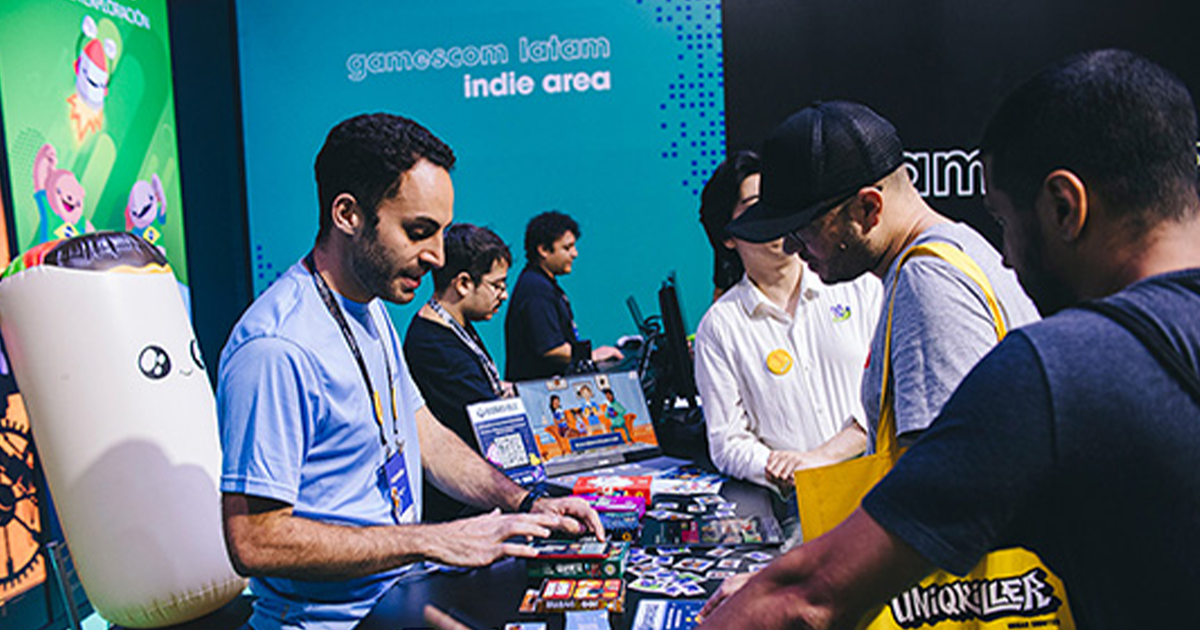Felix Falk, managing director of game—the German games industry association that owns the Gamescom brand and co-organizes the event with Koelnmesse—said he was “surprised” to learn Gamescom Latam had been heavily criticized by a number of local developers following this year’s show in Sao Paulo, Brazil.
Back in May, over 250 developers from Brazil signed an open letter addressed to Gamescom Latam organizers and claimed the event failed to adequately support local exhibitors.
Signatories said local developers were hindered instead of helped after being charged for “exorbitantly priced booths” and other costly equipment rentals. They also expressed disappointment at a perceived lack of food and transportation support and inadequate resting areas for exhibitors that were allegedly told to spend at least 12 hours per day at their booth or risk incurring a penalty.
The letter suggested those issues and more meant Gamescom Latam had positioned itself “antagonistically towards developers.
“This harms precisely those who most need the support, such as the exhibitors in the Panorama Brasil section. This situation becomes even more pronounced when compared to the treatment given to some of the international guests, whose travel and accommodation are often covered, along with other incentives,” it added.
Gamescom Latam organizers quickly pushed back against those allegations (even describing some as “factually inaccurate).
Now, during a recent chat with Game Developer, Falk explained he was taken aback after reading about the controversy and claimed the team in Sao Paulo performed admirably when attempting to support developers in the region.
“I was surprised when I read about the criticism, because—for example, just remembering one fact—if you’re a part of the festival and you can [attend] Gamescom with no money, you have to make sure you as a developer are representing your game to the people,” said Falk.
“That’s something we do here at Gamescom in Cologne, as well. […] We have a big discount for indies so it’s cheaper for them, but we request them to be there [at their booth] because that’s the beauty of it. So that wasn’t anything new. I think it was some kind of miscommunication because I think the team over in Sao Paulo did really well in giving them the opportunity to be part of [the event] without paying.”
To avoid similar situations in the future as the Gamescom team attempts to expand both Gamescom Latam in Brazil and Gamescom Asia in Bangkok, Falk said it’s important they work with partners who have already established strong events in those territories.
That’s why, for instance, he said Gamescom Asia is moving to Bangkok in 2025 after merging with Thailand Game Show. Even though the B2B portion of the event was strong when it was previously hosted in Singapore, he explained the B2C segment was growing more slowly than hoped.
“If we talk about Gamescom [in Cologne], we have hundreds of thousands of people [attending]. I think in Gamescom Asia we had like 30,000 or 40,000—but it was also tough because Gamescom Asia in Singapore started right into COVID. The first edition was really tough for the team,” he explained.
“Singapore was also great for business, so we were able to attract many business people and provide a great B2B experience. But for consumers, Singapore is quite expensive and it’s hard to get there. You have to fly in. The [cost] of flying into an event is of course much higher.”
The hope, then, is that merging with Thailand Game Show and tapping into their experience of hosting a consumer-focused show will help Gamescom Asia strengthen its offering. It will be interesting to see whether developers in Thailand feel the merger has been successful once Gamescom Asia has concluded in October.
Game Developer is attending Gamescom 2025 via the Gamescom Media Ambassador Program, which covered flights and accommodation.
